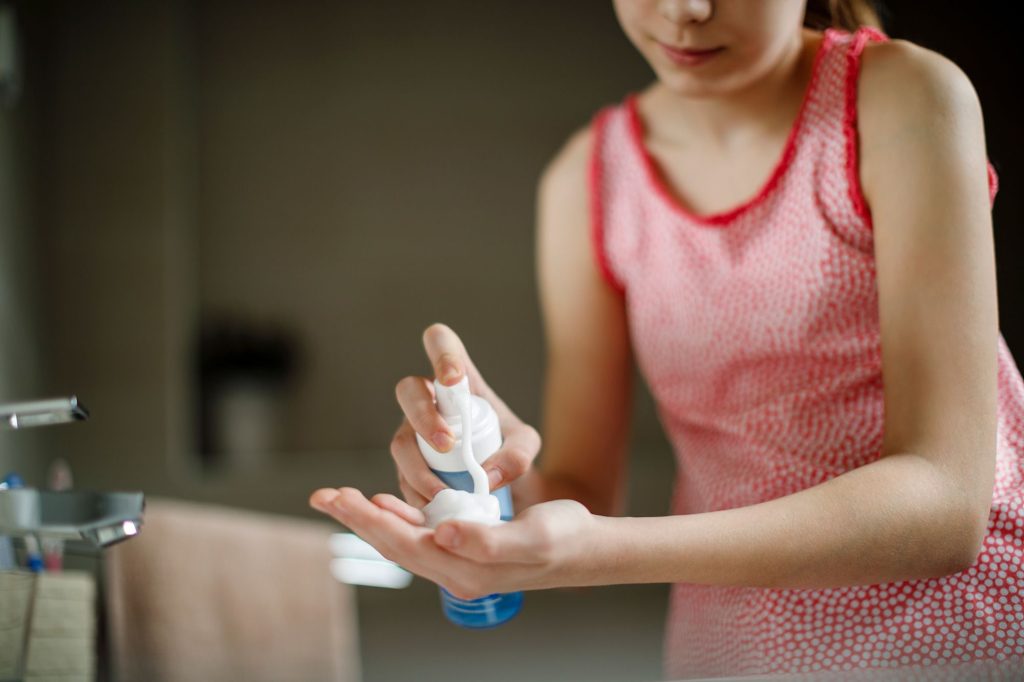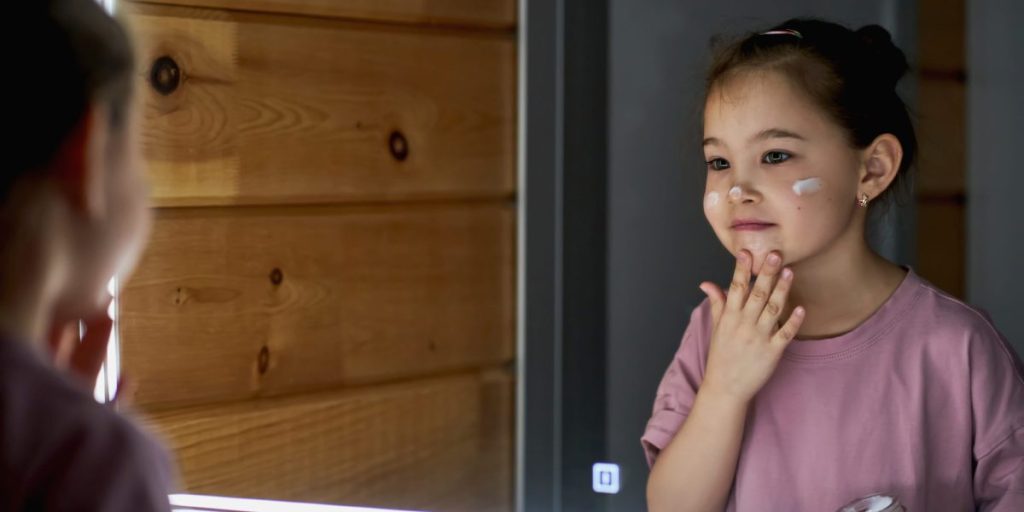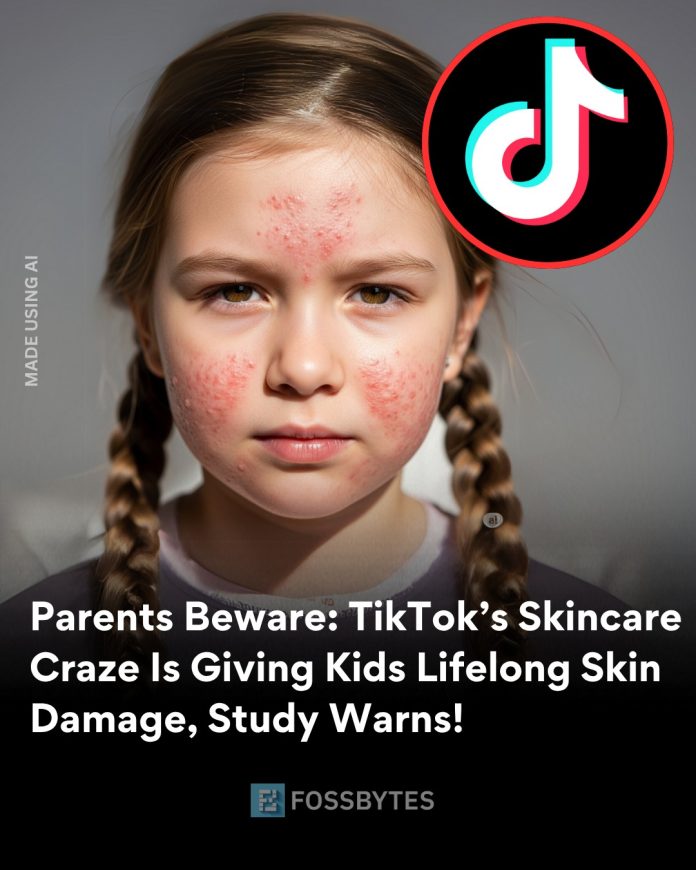In an era where social media dictates trends, even the most personal routines—like skincare—have not been spared. TikTok, the fast-paced video-sharing platform popular among Gen Z and younger, has now become a booming space for skincare influencers. However, a growing concern is sounding alarms among dermatologists and pediatricians: children are increasingly adopting adult skincare routines, leading to potentially irreversible skin damage.
The Rise of Skincare Influencers on TikTok
TikTok’s skincare community has exploded over the past few years. Hashtags like #skincareroutine, #glowup, and #skincheck boast billions of views. Influencers, many without medical qualifications, frequently promote trending products such as retinols, chemical exfoliants, and expensive serums—often targeting a youthful audience.

What once began as a way to share tips has now become a marketing hub. Influencers and brands partner up to push products in short, engaging videos that catch the attention of impressionable users—many of whom are as young as eight to twelve years old.
What the Study Found
A new study conducted by the American Academy of Dermatology (AAD) has revealed startling statistics. Researchers surveyed 1,200 parents and 800 dermatologists across the U.S. The findings? Over 60% of children aged 10 to 13 had used at least one advanced skincare product meant for adults—including retinoids, salicylic acid, or glycolic acid. Alarmingly, 25% of these children experienced side effects ranging from rashes and burns to early signs of skin thinning.
Dr. Melissa Chang, a board-certified dermatologist and one of the study’s lead authors, warns: “We’re seeing an increase in children coming in with chemical burns, irritation, and long-term damage from using inappropriate products promoted by influencers. Children’s skin is thinner, more delicate, and not designed for aggressive ingredients.”
Why Kids Are Vulnerable
Unlike adult skin, children’s skin is more permeable, making it more susceptible to irritation and damage. Their skin barrier is still developing, which means it cannot handle harsh acids, alcohols, and active compounds commonly found in anti-aging and acne treatments.
Add to this the pressure from social media—where beauty standards are unrealistic and often filtered—and children become easy targets for product marketing. Many of them feel compelled to “fix” skin that is naturally changing during puberty.
Some of the most commonly misused skincare products among children include:
- Retinol and Retinoids: Powerful ingredients used for anti-aging and acne control. When used on young skin, they can cause peeling, extreme dryness, and sun sensitivity.
- AHA/BHA Acids: Found in exfoliants and peels, these acids can severely damage a child’s skin barrier.
- Fragrance-heavy Serums and Creams: These can lead to allergic reactions, redness, and eczema in sensitive young skin.
- Pore Strips and Peeling Masks: These often cause more harm than good, leading to broken capillaries and skin tearing.
With kids spending more time online than ever before, it’s crucial for parents to monitor their children’s exposure to skincare trends. This includes:
- Educating them on the importance of age-appropriate skincare
- Encouraging simple routines with gentle cleansers and moisturizers
- Consulting a pediatric dermatologist before introducing any treatment products
- Discussing the difference between marketing and medical advice
According to the AAD study, 73% of parents were unaware their children were using such products until a reaction occurred. This highlights the need for increased communication and awareness at home.

TikTok’s Responsibility?
Many experts argue that TikTok itself should take more responsibility in curating skincare content for minors. While the platform does offer parental controls and content restrictions, enforcement remains inconsistent. Some suggest implementing stricter age-gating for skincare-related posts and requiring disclaimers when medical-grade products are discussed.
Others believe brands need to rethink how they target their marketing campaigns. “It’s unethical to advertise exfoliating acids to 10-year-olds,” says Dr. Chang. “These are not toys, and they can cause serious harm.”
So, what should skincare look like for kids and pre-teens? Experts suggest keeping it simple:
- Mild, fragrance-free cleanser (once daily)
- Hydrating moisturizer
- Mineral-based sunscreen (SPF 30+) if spending time outdoors
There’s no need for anti-aging or acne-fighting products unless prescribed by a professional.
Conclusion: The Trend That’s Hurting Young Skin
As social media continues to influence daily life, particularly for the younger generation, it’s vital to draw the line between entertainment and education. The allure of flawless skin promoted on TikTok might be powerful, but it can come at a cost—one that young people may carry for life.
Parents must remain vigilant, educators should encourage critical thinking, and platforms like TikTok must take accountability. Only then can we protect children from the silent damage caused by well-meaning, but misinformed trends.

















